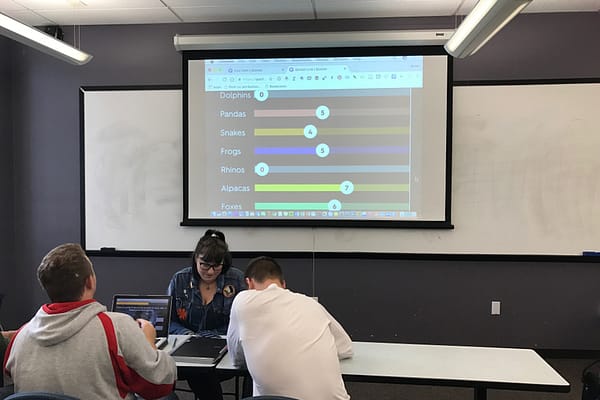 Advising season just ended at our institution.
Advising season just ended at our institution.
We are fortunate in that we have a dedicated advisor for our major, so I don't wind up investing too much time in the process of helping students map out their classes.
Conversations during these two weeks tend to focus on careers and the selection of a major.
Students often have stress around this process because they don't know what they want to do. This lack of vocational clarity is a source of concern, despite the number of times we stress that most people don't wind up doing what they majored in during college.
One question I've started asking students is:
What are times that you have felt the most alive in the last few weeks?
My intention is to help them identify times that they have been in a state of what Mihaly Csikszentmihalyi calls flow. He coined the term and describes it as:
…being completely involved in an activity for its own sake. The ego falls away. Time flies. Every action, movement, and thought follows inevitably from the previous one, like playing jazz. Your whole being is involved, and you're using your skills to the utmost.
Csikszentmihalyi's book Flow was recommended by Dr. James Lang on episode 19 of the Teaching in Higher Ed podcast.
LifeHacker has some other good advice for students on how to discover their career path. There are even some who are trying to make finding a career more like playing a video game.
The other area I strive to get students thinking about is developing competencies versus identifying specific desired jobs.
One resource is the labor department's o*net website. They map specific jobs to the skills that are needed to perform well in that type of a role. They also identify what kinds of experience and education people typically have in a given position.
There's also something to be said for learning how to cultivate one's own happiness. For this quest, we can turn to quite a young source. Logan LaPlante is 13 years old and says he wants to be happy when he grows. up.
All of these questions can be tough and I don't pretend to have any easy answers. Even this New York Times best selling author was unable to get a job at The Container Store, despite her love for organization and excitement at the prospect of greeting others with a similar passion (and her desperate need for health benefits, as she fights breast cancer).
Instead of having the answers, maybe our job is to ask more questions?
[reminder]How do you help your students answer the question of what they're going to do after college?[/reminder]



I tell my students that I am giving them two million dollars and ask them how their life will change. I ask them to report at the next class.
The money allows them to do whatever they want (including nothing) so it frees them to explain what they would do with their lives.
Over the years, several students have switched majors and pursued their ‘passion.’
What a wonderful exercise, Richard. Removing the money concerns by “virtually gifting” the 2 million dollars must really free them up to consider their true passions. Thanks for sharing this with us.